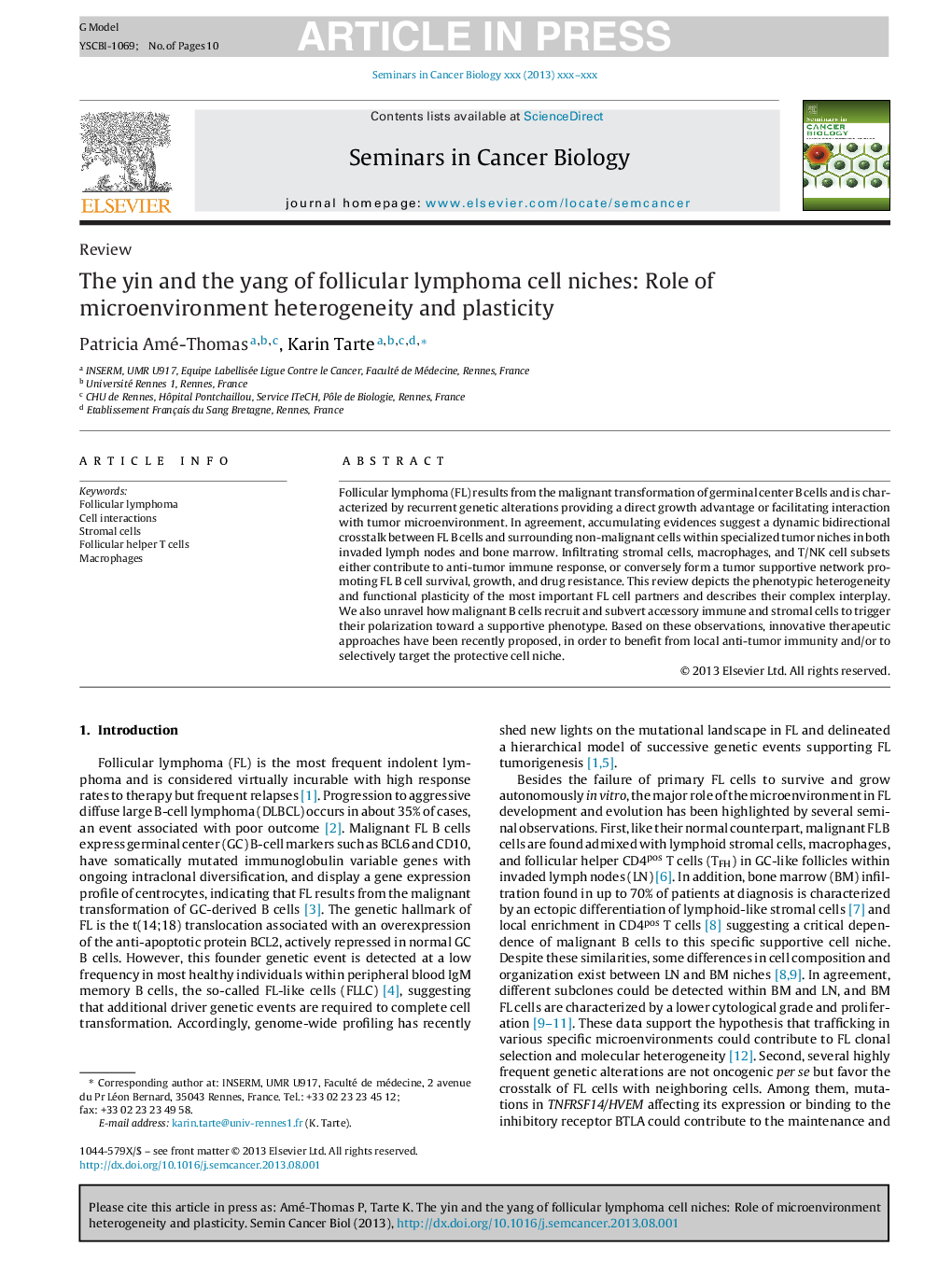| Article ID | Journal | Published Year | Pages | File Type |
|---|---|---|---|---|
| 2023910 | Seminars in Cancer Biology | 2014 | 10 Pages |
Abstract
Follicular lymphoma (FL) results from the malignant transformation of germinal center B cells and is characterized by recurrent genetic alterations providing a direct growth advantage or facilitating interaction with tumor microenvironment. In agreement, accumulating evidences suggest a dynamic bidirectional crosstalk between FL B cells and surrounding non-malignant cells within specialized tumor niches in both invaded lymph nodes and bone marrow. Infiltrating stromal cells, macrophages, and T/NK cell subsets either contribute to anti-tumor immune response, or conversely form a tumor supportive network promoting FL B cell survival, growth, and drug resistance. This review depicts the phenotypic heterogeneity and functional plasticity of the most important FL cell partners and describes their complex interplay. We also unravel how malignant B cells recruit and subvert accessory immune and stromal cells to trigger their polarization toward a supportive phenotype. Based on these observations, innovative therapeutic approaches have been recently proposed, in order to benefit from local anti-tumor immunity and/or to selectively target the protective cell niche.
Related Topics
Life Sciences
Biochemistry, Genetics and Molecular Biology
Biochemistry
Authors
Patricia Amé-Thomas, Karin Tarte,
